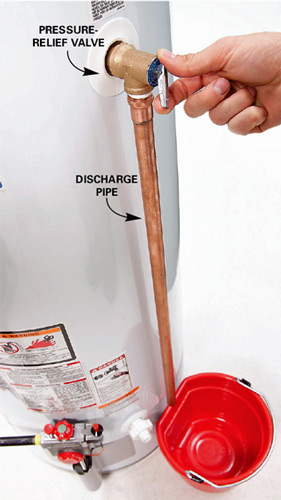Handling the Everyday Heater Urgent Problems
Handling the Everyday Heater Urgent Problems
Blog Article
They are making a few good points on Common Hot Water Heater Problems in general in the article beneath.

A hot water heater is just one of the most vital basic appliances that can be discovered in a house. With hot water heater, you do not require to experience the anxiety of home heating water by hand each time there is a need to take a bath, do the laundry, or the dishes. Nevertheless, there is constantly an opportunity that your water heater would certainly act up similar to most mechanical devices.
It is essential to note any kind of little malfunction and also tackle it swiftly before things leave hand. Many times, your water heater starts to malfunction when there is an accumulation of sediments as a result of constant usage. As a safety measure, regular flushing of your water heater is suggested to prevent debris build-up as well as avoid practical failing.
Common water heater emergency situations and also exactly how to handle them
Leaking hot water heater tank.
In this situation, you must turn off your water heating unit, enable it to cool down, and meticulously look for the source of the issue. At times, all you need to do is to tighten up a few screws or pipe links in cases of minor leaks. If this doesn't function and also the leakage continues, you could require to utilize the services of a technician for a proper replacement.
Fluctuating water temperature.
Your water heating unit might begin generating water of different temperature levels generally ice chilly or scalding warm. There may be a requirement to replace either the home heating or the thermostat system of your water heating system.
Too little warm water
It may be that the water heating unit can not sustain the hot water demand for your apartment or condo. You can upgrade your water heating system to one with a larger capability.
Tarnished or smelly water
You require to know if the concern is from the water or the storage tank resource when this happens. You are certain that it is your water heating unit that is faulty if there is no amusing odor when you run cool water. The odiferous water can be caused by corrosion or the build-up of bacteria or debris in the hot water heater tank. You can attempt flushing out your container or replacing the anode if the issue lingers when you notice this. The function of the anode is to clear out bacteria from your tank. Because the anode pole replacement requires a comprehensive knowledge of your water heating system, you will certainly need the help of a specialist.
Final thought
Some homeowners neglect little caution as well as minor faults in their hot water heater device. This only brings about further damage and also a feasible complete failure of your home appliance. You need to deal with your water heater faults as soon as they come near avoid more expenditures as well as unneeded emergency troubles.
With water heating systems, you do not need to go with the stress of heating water manually every time there is a demand to take a bathroom, do the laundry, or the dishes. Your water heating unit can start producing water of different temperatures usually ice scalding or chilly warm. It may be that the water heater can't sustain the warm water need for your home. If there is no amusing odor when you run cold water, then you are particular that it is your water heating system that is damaged. The stinky water can be triggered by rust or the build-up of germs or debris in the water heating system storage tank.
Common Water Heater Issues and What You Should Do
What Type of Water Heater Do You Have?
Before we begin it’s first important that you identify the type of water heater you have on your property. There are two main types of water heaters out there: conventional and high efficiency.
Both of these types of products typically use either gas or electricity to heat power. There are also solar water heaters that use a thermal collector on the roof or yard to heat the water.
While these models are not as common, they can cut heating costs in half. In this article, we will focus on conventional and high efficiency.
How Do My Electric and Gas Water Heater Work?
Though they look similar, electric and gas water heaters work very differently. It’s important to know their basic function because often problems can be specific to the heating source.
In the electric model, a thermostat on the side of the machine detects the temperature of the water in the tank. When the temperature needs to rise electricity flows to a heating element suspended in the water.
Gas models also use a thermostat device — typically with a mercury sensor at the tip and an additional sensor called a thermocouple. The thermocouple detects whether the pilot light is on and controls the flow of gas.
When the thermostat drops below the appropriate level gas is released which becomes ignited by the pilot light. The flame heats the bottom of the water tank which causes hot water to rise and cold water to drop.
This natural circulation continues until the water reaches the desired temperature. Then, the thermostat triggers the gas control valve to shut off the flow of gas.
What Are the Most Common Issues and How Do You Fix Them?
https://happyhiller.com/blog/common-water-heater-issues-and-what-you-should-do/

I'm just very interested by Is Your Water Heater Leaking? and I'm hoping you liked the entire blog posting. Loved our posting? Please share it. Help another person find it. I love reading our article about Is Your Water Heater Leaking?.
24/7 service for plumbing emergencies. Report this page